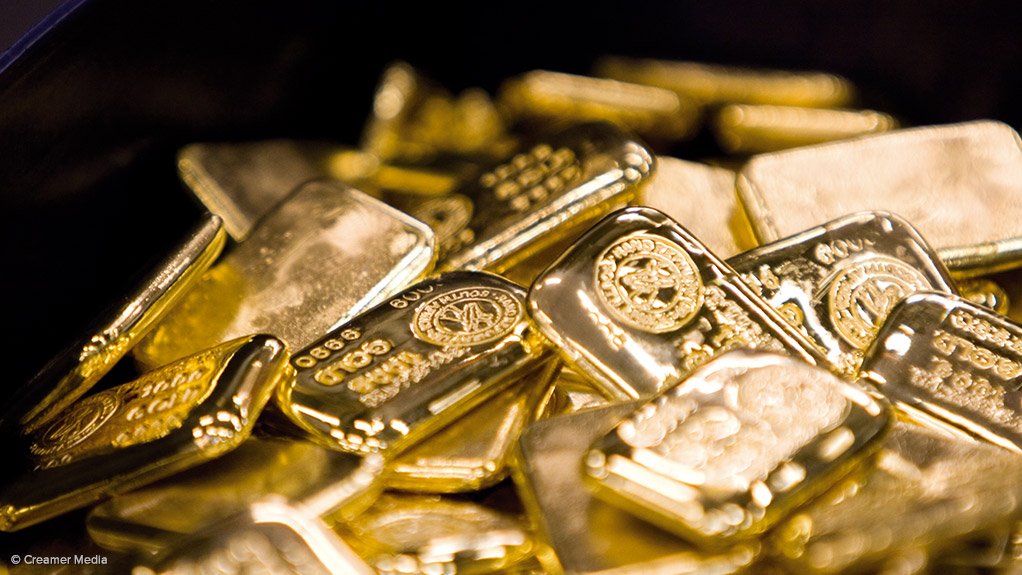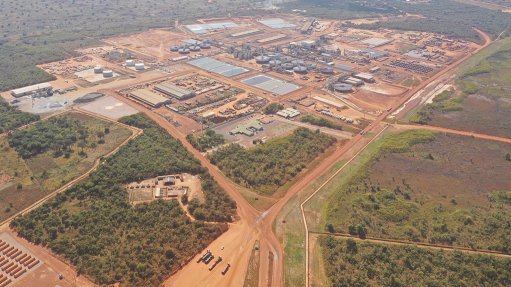Independent report exposes Unctad study on South Africa’s gold misinvoicing as ‘flawed’ – CoM
JOHANNESBURG (miningweekly.com) – A report commissioned by the Chamber of Mines (CoM), following reports by the United Nations Conference on Trade and Development (Unctad) that alleged South Africa’s mining industry systematically indulged in fraudulent misinvoicing to evade taxes and other legal obligations, has found the Unctad report to be “flawed” and “empirically incorrect”.
In July, Unctad published a report titled ‘Trade Misinvoicing in Primary Commodities in Developing Countries: The cases of Chile, Côte d’Ivoire, Nigeria, South Africa and Zambia’.
The report asserted, among other things, that South African miners of silver, platinum-group metals, gold and iron-ore were acting fraudulently.
In respect of gold, specifically, the report stated: “Between 2000 and 2014, underinvoicing of gold exports from South Africa amounted to $78.2-billion, or 67% of total gold exports” and that this “does not appear to be a simple matter of undervaluation of the quantities of gold exported, but rather a case of pure smuggling of gold out of the country”.
The opposing and independent report, compiled by economic consultants Eunomix, said there was no consensus that trade data discrepancies correlated with trade misinvoicing, much less that trade misinvoicing would be the primary cause of such discrepancies.
“Connected to this point, while trade misinvoicing is recognised as a practice, it may not explain, in whole or in part, trade data discrepancies. Therefore, there are alternative explanations for the existence and resilience of large trade data discrepancies. This point invalidates the notion advanced by the Unctad study that discrepancies caused by data error would be self-correcting,” Eunomix said in its report.
Further, with respect to trade data discrepancies in the local gold industry, Eunomix stated that the South African government, which, if the Unctad report was correct, would have been exposed to massive amounts of revenue losses.
Eunomix also stated that the Unctad study’s implicit assumption, that because South Africa does not report gold exports by country of origin to the UN’s Comtrade this means the total value of South Africa’s gold exports is not reported, is not valid.
“This implicit assertion is invalid. As a matter of fact, gold exports are appropriately and comprehensively reported,” it stated, noting that several alternative ways of recording gold export data are publicly available in South Africa, including through Statistics South Africa (Stats SA), the South African Reserve Bank (SARB) and the CoM, which all produce monthly or quarterly gold production statistics.
Eunomix added that total production/export figures were largely consistent across all three sources. The total value of gold exports between 2000 and 2014 stood at $87.1-billion according to the SARB, while the total value of gold produced over that same time period is $85.3-billion, according to Stats SA, and $88-billion, according to the CoM.
The SARB figure is only 2% higher than the Stats SA figure. On average, the CoM values are 1.6% a year higher than the SARB values in both rand and dollar terms and 3.5% higher than the Stats SA values in rand terms and 3.3% in dollar terms.
“The slight differences in reported values can be explained by the volatility in the exchange rate and gold price, as well as different timing of reporting,” the Eunomix report stated.
Lastly, it stated that gold export data sourced by Unctad from South Africa differed widely from the largely consistent three other sources. “The total value of South African gold exports between 2000 and 2014 is lower than the average value provided by the three alternative sources by a staggering $62.7-billion,” the Eunomix report stated.
Comments
Press Office
Announcements
What's On
Subscribe to improve your user experience...
Option 1 (equivalent of R125 a month):
Receive a weekly copy of Creamer Media's Engineering News & Mining Weekly magazine
(print copy for those in South Africa and e-magazine for those outside of South Africa)
Receive daily email newsletters
Access to full search results
Access archive of magazine back copies
Access to Projects in Progress
Access to ONE Research Report of your choice in PDF format
Option 2 (equivalent of R375 a month):
All benefits from Option 1
PLUS
Access to Creamer Media's Research Channel Africa for ALL Research Reports, in PDF format, on various industrial and mining sectors
including Electricity; Water; Energy Transition; Hydrogen; Roads, Rail and Ports; Coal; Gold; Platinum; Battery Metals; etc.
Already a subscriber?
Forgotten your password?
Receive weekly copy of Creamer Media's Engineering News & Mining Weekly magazine (print copy for those in South Africa and e-magazine for those outside of South Africa)
➕
Recieve daily email newsletters
➕
Access to full search results
➕
Access archive of magazine back copies
➕
Access to Projects in Progress
➕
Access to ONE Research Report of your choice in PDF format
RESEARCH CHANNEL AFRICA
R4500 (equivalent of R375 a month)
SUBSCRIBEAll benefits from Option 1
➕
Access to Creamer Media's Research Channel Africa for ALL Research Reports on various industrial and mining sectors, in PDF format, including on:
Electricity
➕
Water
➕
Energy Transition
➕
Hydrogen
➕
Roads, Rail and Ports
➕
Coal
➕
Gold
➕
Platinum
➕
Battery Metals
➕
etc.
Receive all benefits from Option 1 or Option 2 delivered to numerous people at your company
➕
Multiple User names and Passwords for simultaneous log-ins
➕
Intranet integration access to all in your organisation




















